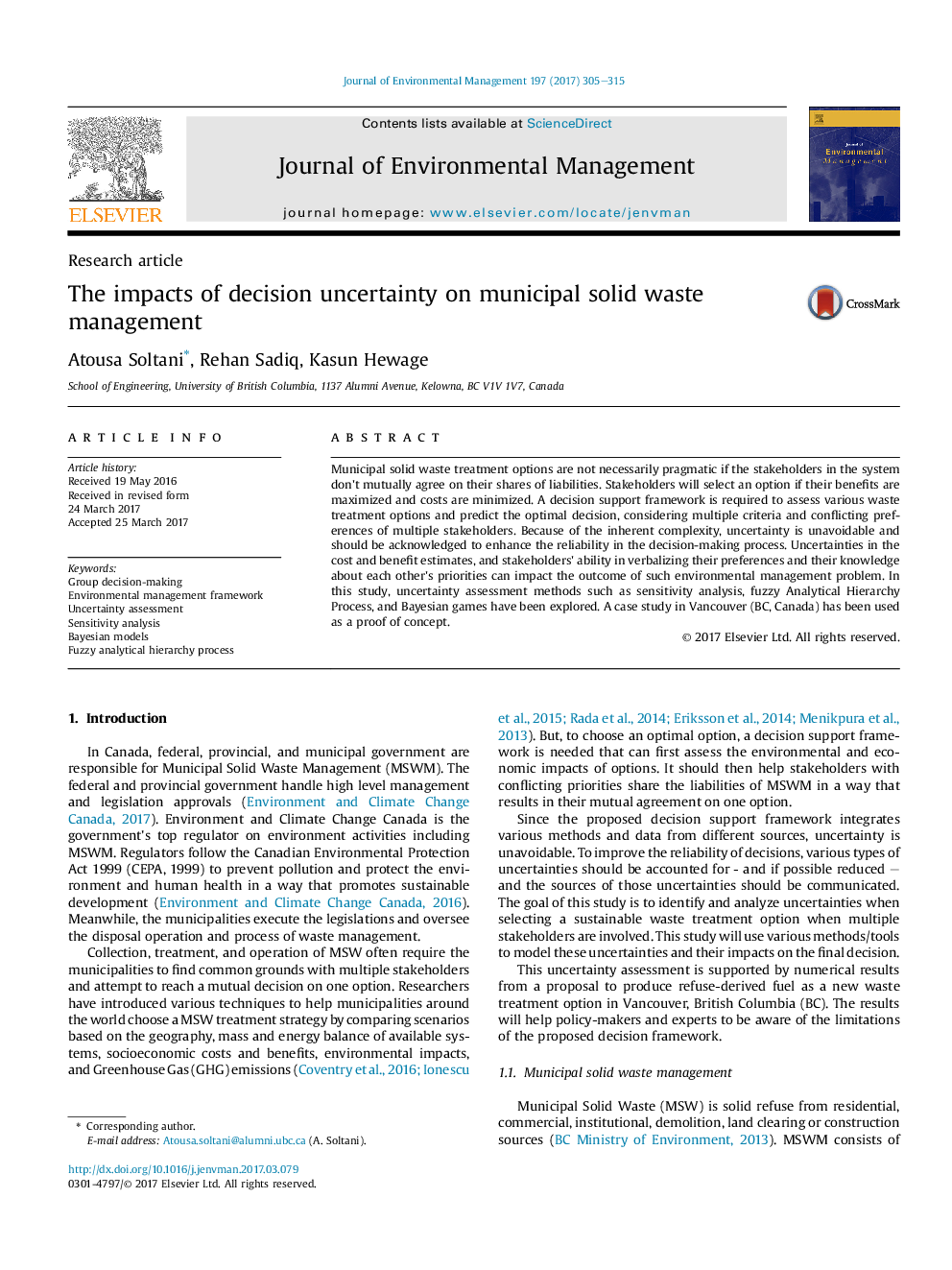| Article ID | Journal | Published Year | Pages | File Type |
|---|---|---|---|---|
| 5116957 | Journal of Environmental Management | 2017 | 11 Pages |
Abstract
Municipal solid waste treatment options are not necessarily pragmatic if the stakeholders in the system don't mutually agree on their shares of liabilities. Stakeholders will select an option if their benefits are maximized and costs are minimized. A decision support framework is required to assess various waste treatment options and predict the optimal decision, considering multiple criteria and conflicting preferences of multiple stakeholders. Because of the inherent complexity, uncertainty is unavoidable and should be acknowledged to enhance the reliability in the decision-making process. Uncertainties in the cost and benefit estimates, and stakeholders' ability in verbalizing their preferences and their knowledge about each other's priorities can impact the outcome of such environmental management problem. In this study, uncertainty assessment methods such as sensitivity analysis, fuzzy Analytical Hierarchy Process, and Bayesian games have been explored. A case study in Vancouver (BC, Canada) has been used as a proof of concept.
Keywords
Related Topics
Physical Sciences and Engineering
Energy
Renewable Energy, Sustainability and the Environment
Authors
Atousa Soltani, Rehan Sadiq, Kasun Hewage,
